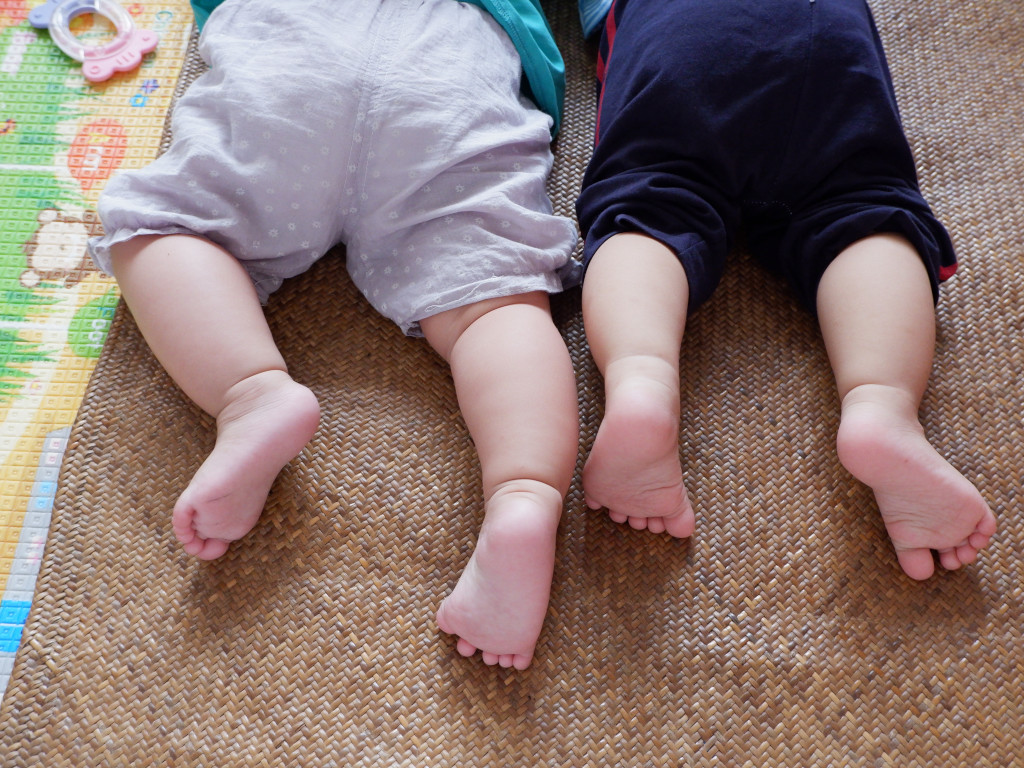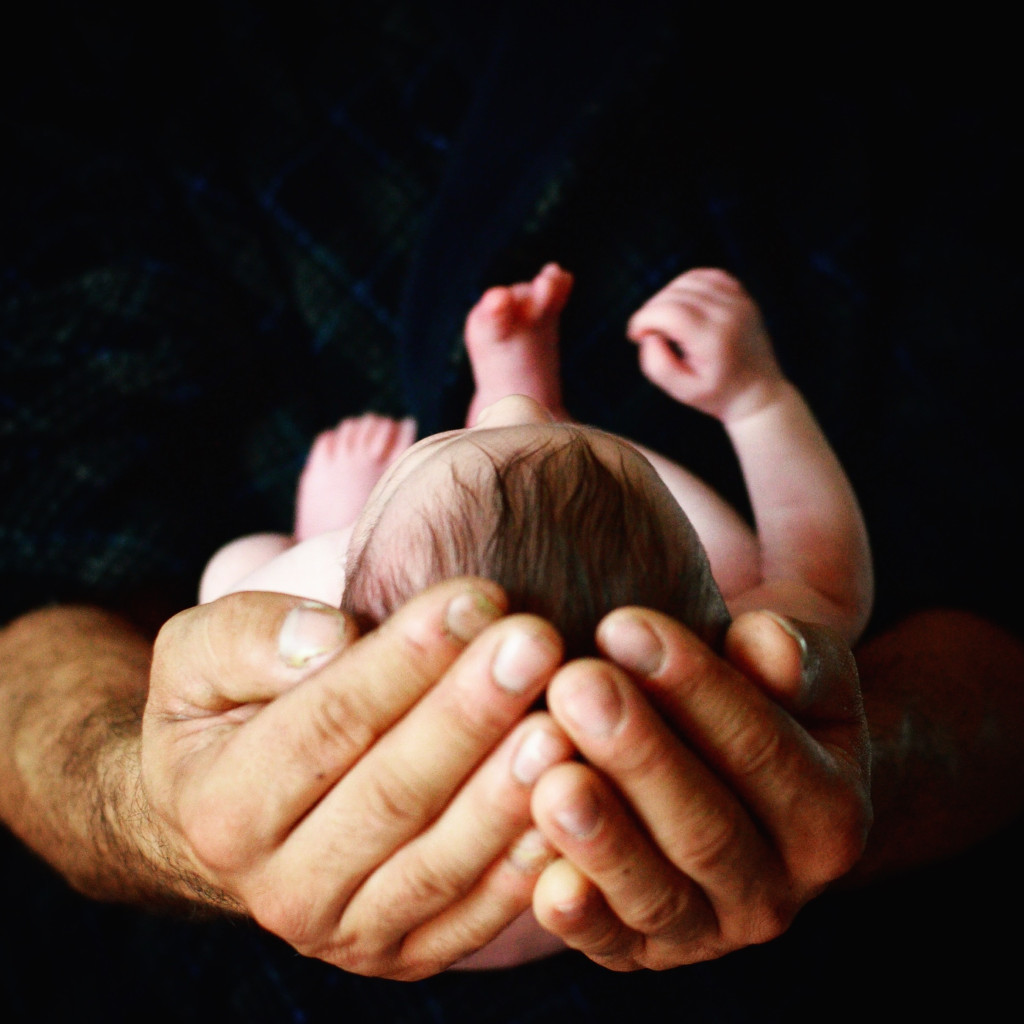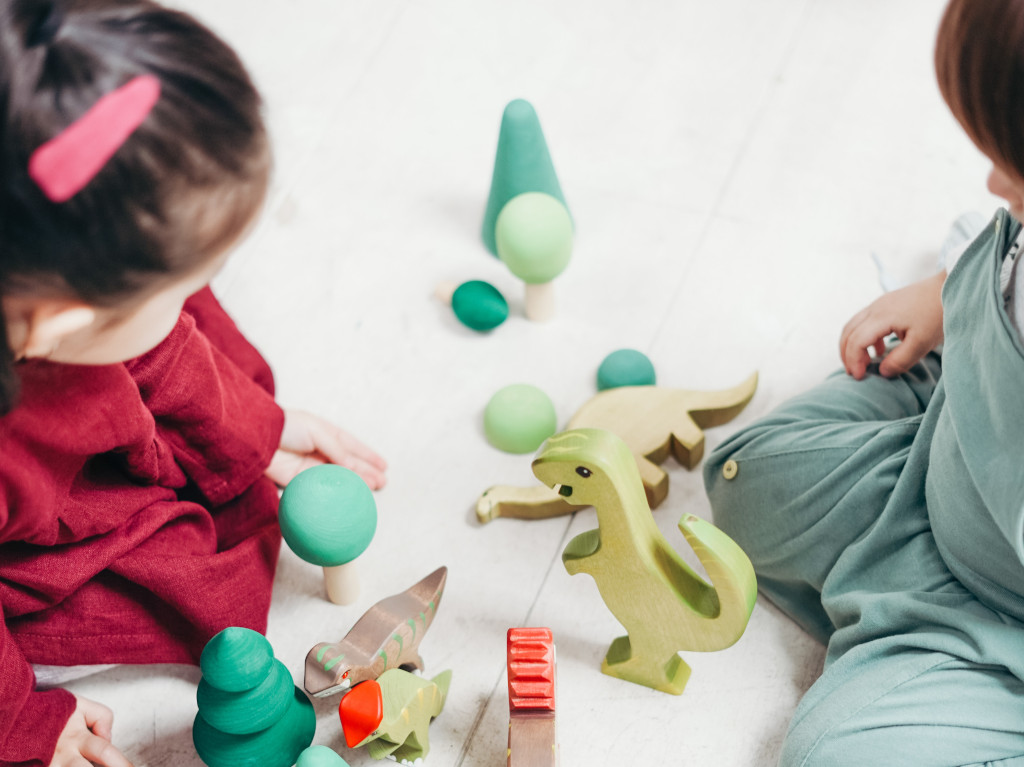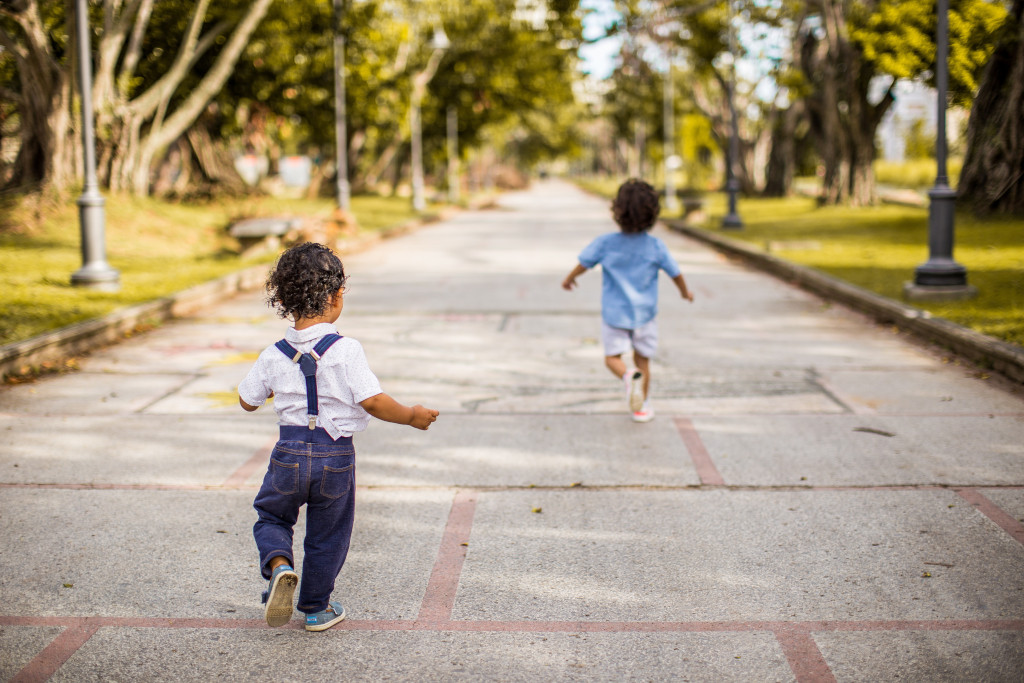SingaporeMotherhood | Baby & Toddler
April 2023
When Should My Baby Start Socialising with Other Children?

Parents begin socialising our babies from birth as we naturally engage with them by talking, singing, smiling, and making eye contact. But when it comes to socialising with other babies and children, don’t wait too long to start. After all, socialisation forms the foundations of communication for infants. Furthermore, it plays a vital role in healthy development of language skills and the ability to empathise with others.
Let’s take a look at some key developmental milestones to help you understand the impact of socialising your baby with other children.
(See also: Baby Sign Language: Why Every Parent Should Learn It and How to Start)
0 to 5 Months: Bonding with Parents
Within the first few months of life, babies begin to communicate by watching and mimicking the facial expressions of adults. They focus best on things that are 20 to 30 cm away from them, which happens to be the distance between them and the face of the person holding them. This allows them to recognise the faces of the people who care for them most often.

At the age of around two months, babies learn how to smile and begin to communicate by smiling and gurgling. You should focus the first three months on bonding with your baby rather than socialising with others. It does no harm to let your little one meet other people, as long as they’re getting plenty of one-on-one time with their primary caregivers.
Between three and five months, babies tend to become more enthusiastic about meeting new people. It’s common for them to give smiles and gurgles as they take in new faces. You can expect them to respond most enthusiastically when they see their parents.
(See also: Childhood Development: Is My Child Meeting Milestones at the Right Time?)
6 to 12 Months: Wariness of Unfamiliar Faces
Between the ages of 6 and 12 months, babies gradually learn how to sit up, crawl and grab objects. The more mobile they become, the more interested they become in other babies and children. Babies don’t play together at this age. If you give them a task or an object to hold their attention, they’ll be preoccupied with this rather than the babies or children around them.
It’s common for 6- to 12-month-old babies to become wary of people who are unfamiliar to them. They may cry or turn away when introduced to someone new. The support of a parent or familiar caregiver helps babies feel reassured and safe when socialising at this age.
13 to 23 Months: Making Friends and Learning to Share

During the second year of their life, babies gradually learn how to toddle and play with a wider variety of toys. As they get to grips with talking and gesturing, they become more capable of communicating. This helps them to make friends. At around 18 months, toddlers often become aware of the distress of other children, although they’re usually uncertain of how to respond. It’s also common for toddlers to begin imitating other toddlers, older children, and adults as they learn how to communicate and behave.
When toddlers in this age range spend time together, they tend to play alongside one another rather than with one another. They’re often protective of toys, which can generate tantrums, but this is the perfect opportunity for them to learn how to share.
(See also: Toddler Developmental Milestones: 12 – 48 months)
24 to 36 Months: Cementing Friendships and Showing Love
From the age of two years and older, toddlers begin to show affection. They enjoy giving hugs and kisses to those they love and trust. They become better at taking turns and sharing, which allows them to play alongside and with other children more easily. Playing together cements friendships. It’s normal at this age for toddlers to consider all their playmates friends. However, they typically have one or two favourite friends whom they gravitate towards most.
At this age, toddlers’ motor skills allow them to explore new environments more easily. Hence it’s a great time to encourage socialisation with other children outdoors. 93 per cent of education providers believe that outdoor learning improves social skills, so outdoor play dates could be a great way to socialise your toddler.
It’s Never Too Soon to Begin Socialising Your Baby

There’s no right or wrong time to start socialising your baby with other children. By socialising your baby in a variety of environments and with plenty of support from familiar adults, you can help them get used to meeting new people and help them to gradually make friends with other children once they’re ready to start exploring the world.
(See also: Super-Fun No-Screen, At-Home Play Ideas your Toddlers and Preschoolers will Love)
Featured image: Lingchor on Unsplash
All content from this article, including images, cannot be reproduced without credits or written permission from SingaporeMotherhood.
Follow us on Facebook, Instagram, and Telegram for the latest article and promotion updates.





